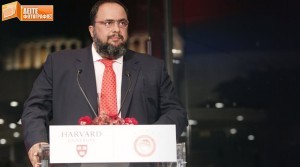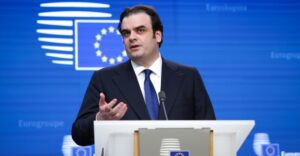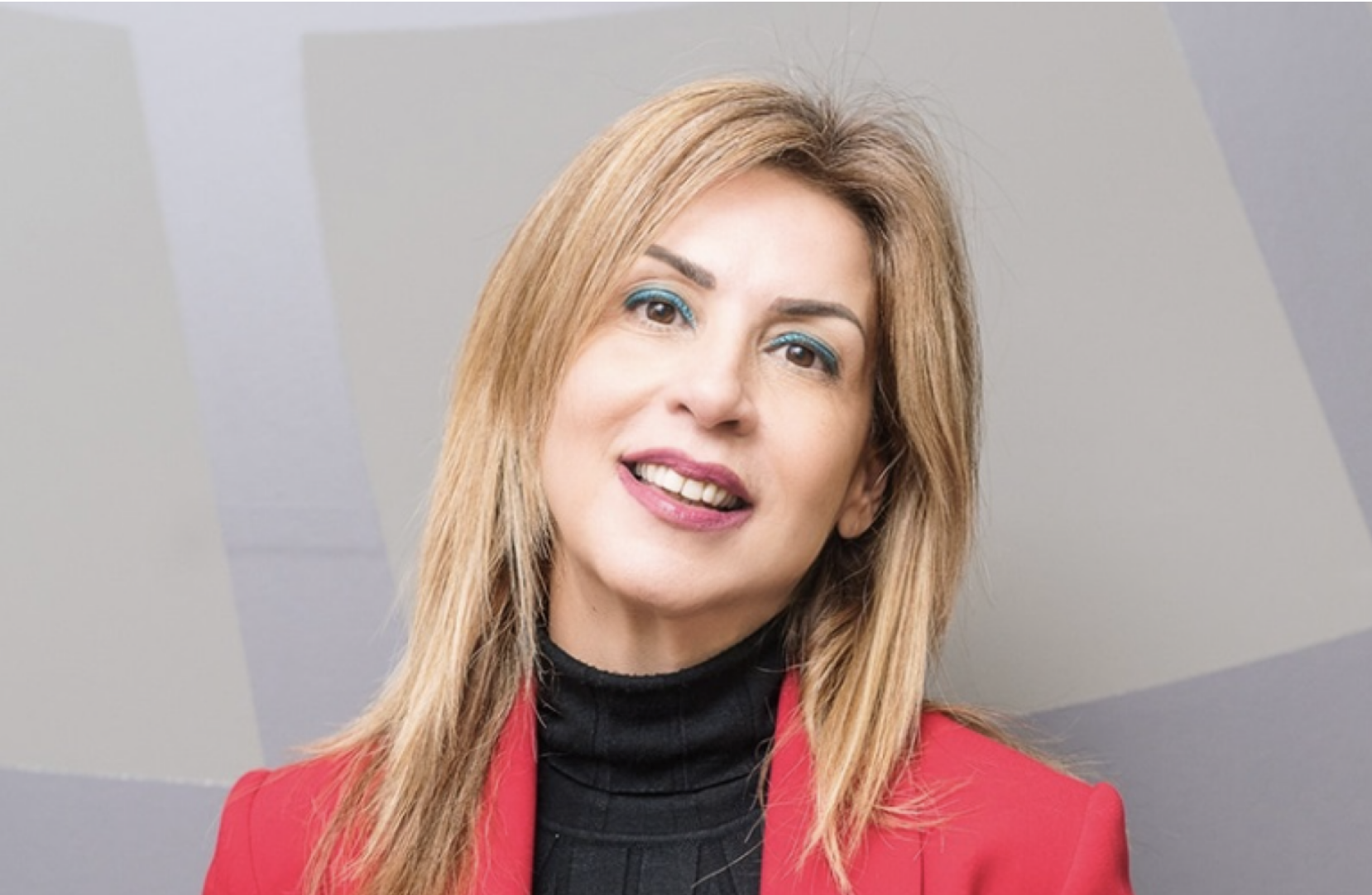Over the last months, there has been an effort to bring the Noor 1 case back into the limelight, not in order to investigate how such a large freight of narcotics emerged, but rather to utilise it as a tool to shape political and business power balances, even if that means essentially setting up a plot.
The people involved in this effort are political and business figures, but also journalists willing to reproduce prefabricated narratives.
At the same time, there is also a judicial dimension. This is where Deputy Appellate Court Prosecutor Eirini Tziva comes in, as she is responsible for a second judicial file which in one way or another touches on the Noor 1 case.
When the case was assigned to her, Ms. Tziva was supervisor of the Piraeus Lower Court Prosecutor’s Office. Shortly thereafter, on 2 February, 2017, she was promoted, by the Supreme Judicial Council, to the post of Appellate Court Deputy Prosecutor, and on 17 February, 2017, she was transferred to the Kalamata Appellate Court Prosecutor’s Office.
However, as a judicial source has said, “Miracle of miracles, despite the fact that six months have passed and other prosecutors have been promoted, Ms. Tziva remains unmoved from her post. The justification offered for not moving Ms. Tziva from Piraeus to Kalamata was that all of the transfers of judicial functionaries, decided by the Supreme Judicial Council at the beginning of 2017, will be carried out on 16 September, when the new judicial year commences. At first blush, the justification is credible, even though usually, if not always, such transfers are carried out immediately after the decision of the Supreme Judicial Council, and as soon as the related Presidential Decree is issued, and do not await in limbo.”
All of the above appears to be related to the case that Ms. Tziva assumed responsibility for at the beginning of 2017. The facts are by now known. The “forgotten” secret deposition of Makis Giannousakis from 2015, which makes no mention of narcotics, is pulled out, and Coast Guard officer Panagiotis Christoforidis, who had recorded the deposition in 2015, assumes action.
On 17 January, 2017, we have a peculiar confluence of events. On the night of 16 toward 17 January, SKAI television’s website posts a report entitled “The new court file on the Noor One: Witness implicates president of large football club in money-laundering and contraband”. It referred to the television programme “The Trial on SKAI”. The report cites “controversial testimony of a protected witness” who “implicates the president of a large football club in the new court file of the notorious Noor One case”. It also cites the investigation of the Piraeus Prosecutor’s Office regarding “money-laundering and contraband fuel” which, however, is linked “with the funding of the freight of 2.1 tonnes of heroin”.
Based on that report, the Supreme Court Prosecutor transmits the report, with a document bearing the Protocol Number 4009/17-01-2017, and orders a preliminary investigation. As we learned a few months after that night, and following telephone communications between Defence Minister Panos Kammenos and journalist Makis Triantafyllopoulos, on the one hand, with Giannousakis, who was serving a life term, and with the Minister of Justice on the other, Ms. Tziva hastened to take a deposition [from Giannousakis], and indeed briefed Justice Minister Stavros Kontonis during the encounter.
Experienced prosecutorial and legal circles believe that a fact that weighs heavily on Ms. Tziva is that before she visited the Avlona Prison to take the deposition from Giannousakis, accusing Vangelis Marinakis, she first went by mistake to Korydallos Prison. The same circles maintain that “this means that she did not go on her own initiative to take the deposition, but rather on orders from Kammenos or Kontonis, and that she was unaware of which prison Giannousakis was serving his life term.
As we now know, Giannousakis did not offer the expected testimony, but instead agreed to hand over records of his bank account transactions. Giannousakis’ testimony and his bank transactions are the evidence on the basis of which a new case will be launched, regarding the transport of a large narcotics freight, with case number ABM M 17/237.
It should be noted that this is a case file that runs parallel to the case file of the continuing, main investigation into the Noor 1 affair, which is being investigated by prosecutor [Aspasia] Alvanou. She recently issued arrest warrants against two Turkish funders, as in the lower court. In the context of putting on trial the funders of the trip and the freight, the two Turks were arrested and charged.
The fact that two separate case files were opened is of significance, as is the fact that the second case file at times is depicted [through the necessary leaks] at times as a case of contraband and money laundering, and at others as a narcotics case involving the Noor 1, or even both combined.
By all appearances, the special treatment for Ms. Tziva was related to the particular duties that she had to exercise, especially in relation to cases pertaining to Evangelos Marinakis. As high-level judicial sources have told us, “Among Ms. Tziva’s responsibilities was seeking out criminal responsibilities of Evangelos Marinakis, for any type of crime, as long as charges are filed. At first, there was an effort to link Marinakis with the Noor One case. Now they have settled for the crime of contraband, as long as there are criminal charges filed. It matters little if these charges are groundless and represent an abuse of power, and that they are destined to collapse. What is important is to harm Evangelos Marinakis now, with any means possible, because certain people have a vested interest in harming him.
It should be noted that, according to corroborated information, the report drafted by officers of the Economic Police focuses especially on particular findings, but glosses over other interesting aspects of the case. We say this – setting aside the self-evident observation that it would be odd for illegal acts and contraband to be handled through the regular corporate accounts of those involved [which is the reason that the judicial probe of the Noor One case did not concern itself with the legal transactions of G Tankers, Giannousakis’ company].
For example, there has been an especial interest in seeking out problems with various transactions of a company owned by Marinakis and a lawyer with whom he was collaborating, with the notorious issue of cash that was transported by a certain Syntychakis – about which the necessary explanation was offered, that it involved the return of a money wire that was not used, and for which a fine was paid for illegally bringing money into the country – and with an insurance contract that was paid for a ship that was being managed by Giannousakis (which is the only reason that Elias Tsakiris – who is not a “collaborator of Evangelos Marinakis”, but rather an employee of one of the biggest shipping insurance companies – was not called in. At the same time – and without having any intention of disputing that legal transactions were involved – even though particularly large transactions were discovered (of US dollars: 1,099,970; 2,049,990; 1,549,990; 2,049,990; 1,999,990) – the report justifies these transactions with a company owned by American interests and called MCMP Fuels, about which “until today evidence and documents have not been produced confirming the legal cause or the true transaction relationship”, on the grounds that “a relationship of transactions had been established”.
All this confirms that there was a rationale that at all costs one had to find some “evidence” that would confirm various narratives proposed to support Marinakis’ “misconduct”.
That all this was methodically planned, including assigning the case to Ms. Tziva, is confirmed by Hellenic Coast Guard officer, Panagiotis Christoforidis, in his conversation with Giannousakis that was revealed byUnfollow magazine: “I am fighting to keep her there, in other words, we found someone to keep her there until this is over”. As a high-level judicial functionary told us: “It is patently obvious that the Coast Guard officer, who is the protagonist of this unprecedented judicial plot against Marinakis, knew that Prosecutor Tziva, on the one hand would be promoted and transferred, but on the other hand would remain in Piraeus as long as necessary to complete her mission and to finish up the case, in accordance with the wishes of Mr. Christoforidis and those who are directing him.”
Certainly, the revelations that were given publicity, and our revelations about the conversations of Panos Kammenos with the life-termer Giannousakis, about the not so lawful practices of Mr. Christoforidis, and about the handling of the case by Ms. Tziva, changed the facts of the case substantially. However, the apparently strong political cover that these machinations have within the government, resulted in the case remaining open.
Nevertheless, judicial and legal circles note that issues are raised by Ms. Tziva’s behavior. “A criminal and disciplinary investigation of Ms. Tziva is underway. She has been summoned as a suspect to offer explanations, yet she did not feel the need, even for the sake of appearances, to recuse herself from the case. Might she be afraid that the competent Judicial Council will decide that Prosecutor Tziva should not handle the case any longer?” they underlined.
The same circles also note that: “Vangelis Marinakis’ attorney handed over to Ms. Tziva written documentation that proves his innocence. Yet, she refused to receive the documents. Instead, the next day she sent the Economic Police to the offices of his shipping company, to conduct a supposed investigation to find the very documents that had been voluntarily offered to her the previous day, but that she had refused to receive. Is it a communications show at the expense of Marinakis, a show of force and a scare operation, or all that at once?
Legal circles also noted to us the particular behavior that Ms. Tziva displayed towards witnesses. “She summoned a witness around the 15 August holiday, when everyone is away on vacation, without informing him which case he would be examined about. When his lawyer informed her that his client was away on vacation and would return at the end of August, Ms. Tziva became riled and enraged, and she threatened that if he did not cut short his vacation, he would be summoned as a suspect. In an apparent slip, she said she could not wait because she had to finish the case soon (obviously because she would move to Kalamata). This is more proof that Ms. Tziva herself had to necessarily finish the investigation against Marinakis, as Christoforidis had previously announced. Might that be why Ms. Tziva did not go on vacation at all that summer?”
On this particular point, we believe that the observation of an important political player on the governmental side, who is knowledgeable about the judiciary, is of particular significance: “Did Supreme Court Prosecutor Xeni Dimitriou know all this? If she knew, what does she intend to do? Is Ms. Tziva, obviously because she has begun to realise her difficult position and great responsibilities, sending a message to Ms. Dimitriou that she had briefed her, through a leak published by the newspaper Documento , which as everyone knows has a privileged position with the Prime Minister’s office? Has Ms. Tziva provided to Ms. Dimitriou an exhaustive briefing, or a selective and misleading one? Might it be that the Supreme Court Prosecutor should first of all have told Ms. Tziva that turning a witness into a suspect constitutes a new, glaring abuse of power, if it does not derive from an objective evaluation of the evidence in the case, but rather from the vengefulness of the Prosecutor? Whence does the arrogance of Ms. Tziva derive? Can it be from her friendly relations with Justice Minister Kontonis, or his partner, or with other ministers? Can it be that certain people have assured her that they will protect her?”
On this point, judicial and legal circles told us about the broader dimensions and depth of the problem: “For disciplinary misdeeds, there is a very brief statute of limitations, but for felonies, it is not less than 15 years. As a good prosecutor, Ms. Tziva knows that even if the criminal cases against her are placed in the archives, that is temporary, and they can easily be pulled out.”
High level judicial functionaries noted that, “Even at the Supreme Court, they are concerned by Ms. Tziva’s behavior, especially the Deputy Supreme Court Prosecutor, due to his capacity as prosecutor. After all, they are the ones who in two years will select Ms. Dimitriou’s successor, by which time Syriza will be in the opposition.”
The political calculation surrounding this case is obvious. The renewed effort to link Marinakis to the Noor 1 practically began in the period during which the first tender for nationwide television broadcasting licenses was being conducted. It became heightened during the period when the assets of DOL (the former Lambrakis Media Group) were being sold off. Now, there is yet another surge, as the procedures for the second television licenses tender have begun in earnest. However, when political designs of any kind are pursued by trampling on basic principles of law and the setting up of plots, then this harms not just this or that businessman, but the very operation of democracy.
Ask me anything
Explore related questions





